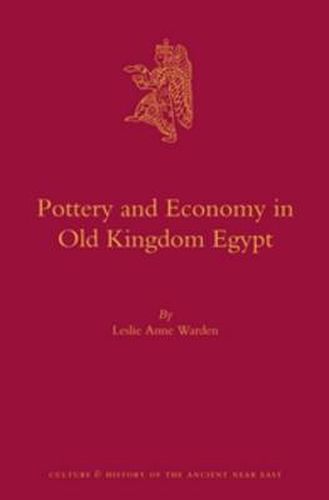Readings Newsletter
Become a Readings Member to make your shopping experience even easier.
Sign in or sign up for free!
You’re not far away from qualifying for FREE standard shipping within Australia
You’ve qualified for FREE standard shipping within Australia
The cart is loading…






In Pottery and Economy in Old Kingdom Egypt, Leslie Anne Warden investigates the economic importance of utilitarian ceramics, particularly beer jars and bread moulds, in third millennium BC Egypt. The Egyptian economy at this period is frequently presented as state-centric or state-defined. This study forwards new methodology for a bottom-up approach to Egyptian economy, analyzing economic relationships through careful analysis of variation within the utilitarian wares which formed the basis of much economic exchange in the period. Beer jars and bread moulds, together with their archaeological, textual, and iconographic contexts, thus yield a framework for the economy which is fluid, agent-based, and defined by small scale, face-to-face relationships rather than the state.
$9.00 standard shipping within Australia
FREE standard shipping within Australia for orders over $100.00
Express & International shipping calculated at checkout
Stock availability can be subject to change without notice. We recommend calling the shop or contacting our online team to check availability of low stock items. Please see our Shopping Online page for more details.
In Pottery and Economy in Old Kingdom Egypt, Leslie Anne Warden investigates the economic importance of utilitarian ceramics, particularly beer jars and bread moulds, in third millennium BC Egypt. The Egyptian economy at this period is frequently presented as state-centric or state-defined. This study forwards new methodology for a bottom-up approach to Egyptian economy, analyzing economic relationships through careful analysis of variation within the utilitarian wares which formed the basis of much economic exchange in the period. Beer jars and bread moulds, together with their archaeological, textual, and iconographic contexts, thus yield a framework for the economy which is fluid, agent-based, and defined by small scale, face-to-face relationships rather than the state.